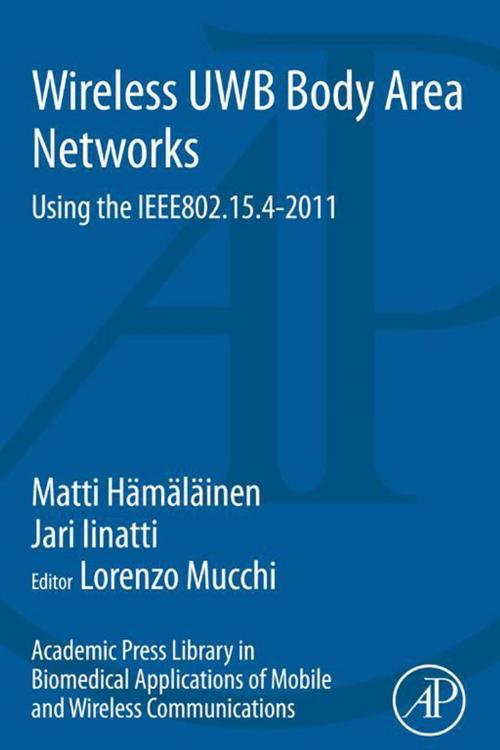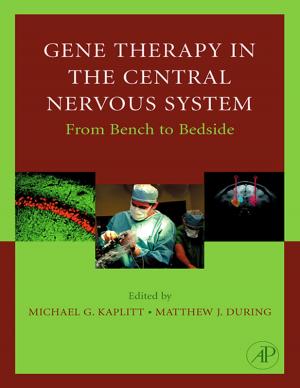Academic Press Library in Biomedical Applications of Mobile and Wireless Communications: Wireless UWB Body Area Networks
Using the IEEE802.15.4-2011
Nonfiction, Science & Nature, Science, Biological Sciences, Biotechnology, Technology, Engineering| Author: | Matti Hamalainen | ISBN: | 9780128010020 |
| Publisher: | Elsevier Science | Publication: | March 5, 2014 |
| Imprint: | Academic Press | Language: | English |
| Author: | Matti Hamalainen |
| ISBN: | 9780128010020 |
| Publisher: | Elsevier Science |
| Publication: | March 5, 2014 |
| Imprint: | Academic Press |
| Language: | English |
Wireless sensor and body area networks (WSN and WBAN respectively) have been seen as a future way to monitor humans’ psycho-physiological signs remotely. There are a number of standards that could be used for building WBAN sytems. However, wireless UWB networks based on IEEE 802.15.4a offer the advantages of a large frequency range and low power spectral density, making it suitable for both WSNs and WBANs used for medical applications. The technology has matured sufficiently that it can be used to develop products for the marketplace. This book presents how the IEEE802.15.4-2011 (former IEEE802.15.4a) can be used in wireless body area networks (WBAN) for healthcare and welfare related applications. It gives a short overview on the IEEE802.15.4 family and then gives details of IEEE802.15.4-2011 based solutions.
- Presents how the IEEE802.15.4-2011 (former IEEE802.15.4a) can be used in wireless body area networks (WBAN) for healthcare and welfare related applications.
- Gives a short overview on the IEEE802.15.4 family.
- Gives details of IEEE802.15.4-2011 based solutions.
Wireless sensor and body area networks (WSN and WBAN respectively) have been seen as a future way to monitor humans’ psycho-physiological signs remotely. There are a number of standards that could be used for building WBAN sytems. However, wireless UWB networks based on IEEE 802.15.4a offer the advantages of a large frequency range and low power spectral density, making it suitable for both WSNs and WBANs used for medical applications. The technology has matured sufficiently that it can be used to develop products for the marketplace. This book presents how the IEEE802.15.4-2011 (former IEEE802.15.4a) can be used in wireless body area networks (WBAN) for healthcare and welfare related applications. It gives a short overview on the IEEE802.15.4 family and then gives details of IEEE802.15.4-2011 based solutions.
- Presents how the IEEE802.15.4-2011 (former IEEE802.15.4a) can be used in wireless body area networks (WBAN) for healthcare and welfare related applications.
- Gives a short overview on the IEEE802.15.4 family.
- Gives details of IEEE802.15.4-2011 based solutions.















